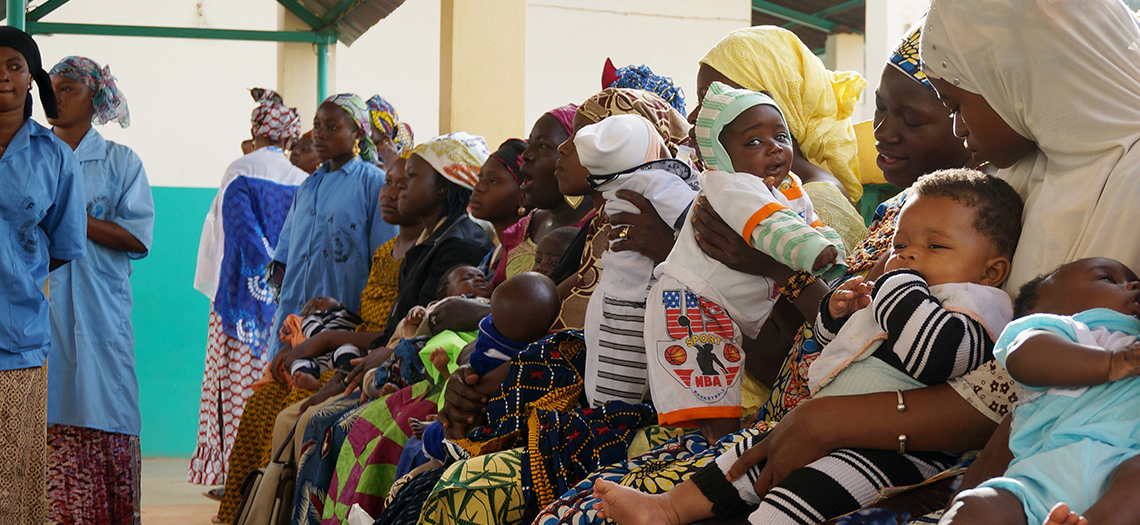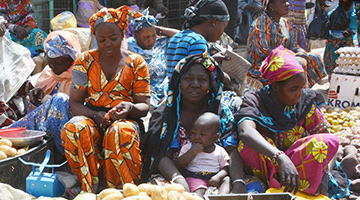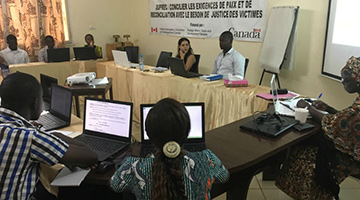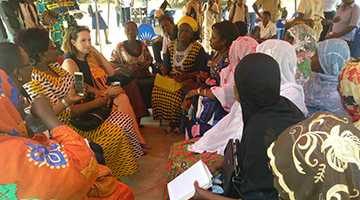Family and community medicine: An asset in isolated regions of Mali
Women participating in an awareness session on health services at the Sanoubougou II Community-University Health Care Centre in Mali. | Photo credit: Centre de cooperation international en santé et développement
Canadian assistance has contributed to a significant increase in the national attended birth rate and the rate of contraceptive use.
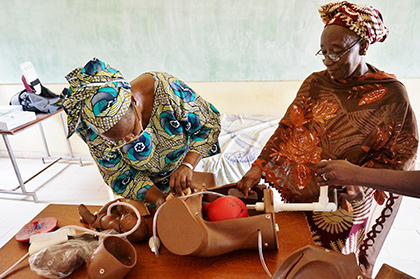 Future family and community medicine practitioners attend a Canada-supported training program at one of Mali's community health care centres. | Photo credit: Centre de cooperation international en santé et développement
Future family and community medicine practitioners attend a Canada-supported training program at one of Mali's community health care centres. | Photo credit: Centre de cooperation international en santé et développement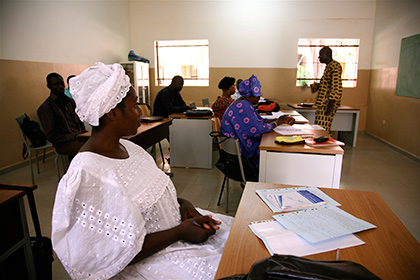 Future family and community medicine practitioners attend training programs at one of Mali's five community health care centres supported by Canada. | Photo credit: Centre de cooperation international en santé et développement
Future family and community medicine practitioners attend training programs at one of Mali's five community health care centres supported by Canada. | Photo credit: Centre de cooperation international en santé et développementPrenatal and post-natal follow-ups, birth spacing and breastfeeding – the topics are wide ranging at this awareness session at the Sanoubougou II Community-University Health Care Centre in Mali’s Sikasso region.
For most Malians, it is difficult to access sexual and reproductive health services.
This centre is part of a network of five university-community health centres in Mali. The network was set up with the cooperation of the Université de Sherbrooke, Cégep de Saint-Jérôme and the Centre de cooperation internationale en santé et développement, with Canada’s support. Future practitioners of family and community medicine, both men and women, come to study here; an innovative approach in Mali.
The Développement de l'Enseignement Clinique et Communautaire au Mali (DÉCLIC) project [French only] helped create a specialized studies diploma in family and community medicine at the Université des sciences, des techniques et des technologies de Bamako. This is a skills-based training program with internships, inspired by a Canadian model, which better meet Malians’ needs.
The physicians, nurses, midwives and paramedics have become essential links in the Malian health system. Each year, 300 new graduates from training programs supported by Canada (60% are women) are ready to offer local services in the most isolated communities.
Canada has been active in Mali’s health sector for a long time. Canadian assistance has contributed to a significant national increase in the attended birth rate and the rate of contraceptive use.
Canada’s Feminist International Assistance Policy plans an investment of $650 million over three years. This will support the health, reproductive and sexual rights of girls and women worldwide.
Related Links
- Date Modified:
